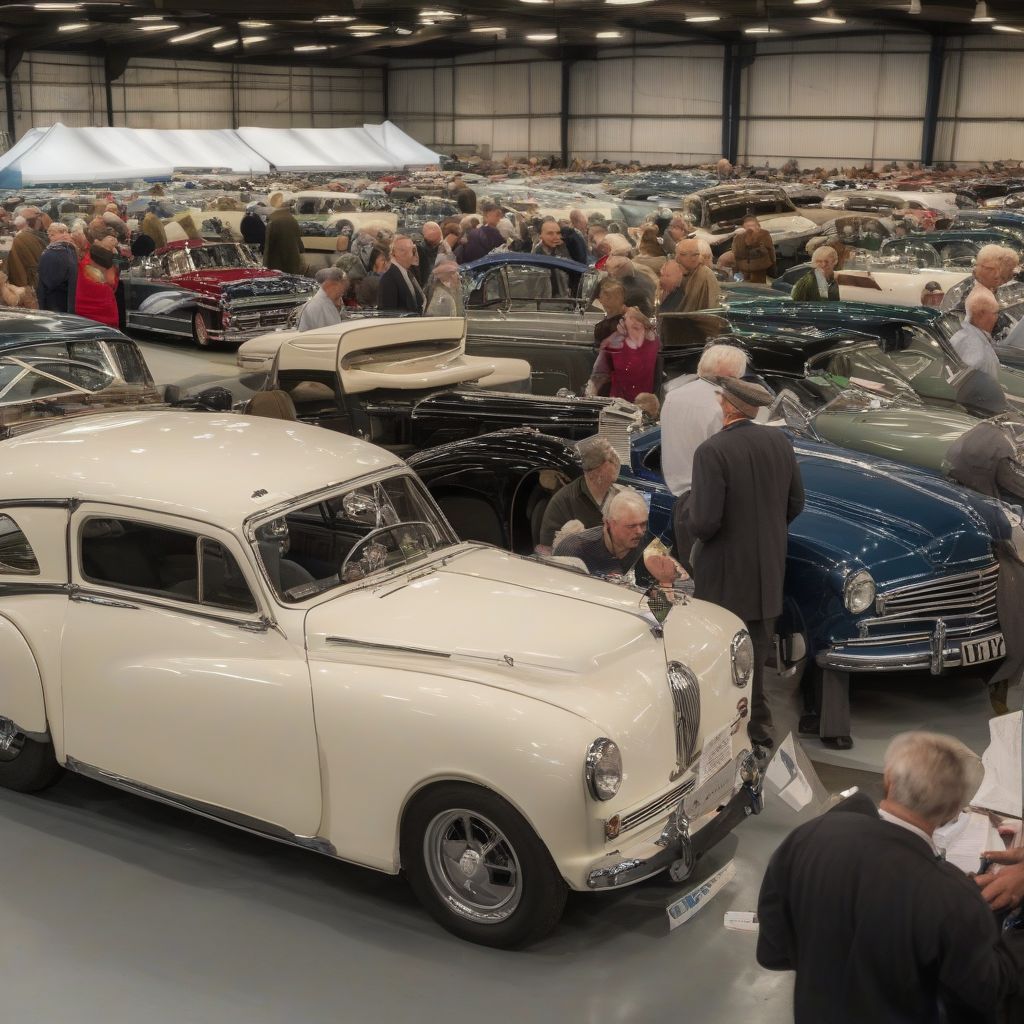“A classic car is a dream on four wheels.” This age-old saying perfectly captures the allure of these vintage vehicles, representing not just a mode of transportation but a tangible piece of history, craftsmanship, and often, a hefty dose of nostalgia. But the world of classic car collecting is much more than a sentimental journey; it’s a dynamic market influenced by trends that ebb and flow like the tide.
Whether you’re a seasoned collector or a curious enthusiast considering dipping your toes into this exciting market, understanding the current trends is vital. So, buckle up as we take a thrilling ride through the exciting world of classic car collecting, exploring the forces shaping its future.
Shifting Gears: What’s Driving the Trends?
The classic car market, much like the vehicles themselves, is constantly evolving. Several factors contribute to these dynamic shifts:
1. The Rise of the Millennials
Millennials, often dubbed the “digital generation,” are coming of age, and their influence is being felt across industries, including classic cars. Unlike previous generations who primarily sought out American muscle cars, millennials are embracing a broader spectrum, including Japanese Domestic Market (JDM) cars, European sports cars, and even quirky, nostalgic models from their childhood.
2. The Digital Marketplace
The internet has revolutionized how we buy and sell, and the classic car market is no exception. Online auction platforms, specialized websites, and social media have broken down geographical barriers, connecting buyers and sellers globally and contributing to a more transparent and accessible market.
3. The Investment Factor
While passion remains a primary driver, classic cars are increasingly viewed as alternative investments. As traditional markets experience volatility, tangible assets like classic cars, particularly rare and sought-after models, offer a potential hedge against inflation and economic uncertainty.
4. The Nostalgia Effect
Nostalgia is a powerful force, and for many, classic cars represent a bygone era of style, craftsmanship, and driving pleasure. This emotional connection fuels demand for cars that evoke memories of youth or a particular cultural moment.
Spotting the Gems: Trending Classic Cars
While the definition of a “classic” car can be subjective, some models consistently generate significant interest and value appreciation. Here’s a glimpse at some trending categories:
1. Japanese Domestic Market (JDM) Cars
Once relegated to niche enthusiast circles, JDM cars like the Toyota Supra, Nissan Skyline GT-R, and Honda NSX have exploded in popularity. Their combination of performance, unique styling, and a connection to motorsport heritage resonates with a new generation of collectors.
2. 1980s and 1990s Icons
The cars we grew up with often hold a special place in our hearts. Models from the 1980s and 1990s, such as the Ferrari Testarossa, Porsche 911 (964), and BMW E30 M3, are experiencing a resurgence as millennials seek out the cars of their youth.
3. Limited Production and Special Editions
Rarity often translates to desirability in the classic car world. Limited-production models, special editions, and cars with unique histories or celebrity provenance command significant premiums.
 Classic Car Auction
Classic Car Auction
Steering Clear: Navigating the Risks
While the classic car market offers exciting opportunities, it’s essential to be aware of potential pitfalls:
1. Market Volatility
Like any market, the classic car market is subject to fluctuations. Factors like economic downturns, changing tastes, and even fuel prices can impact values.
2. Authenticity and Documentation
Verifying a classic car’s authenticity and provenance is crucial. Unscrupulous sellers may try to pass off replicas or cars with questionable histories.
3. Maintenance and Restoration Costs
Owning a classic car is a labor of love. Maintenance and restoration can be costly and time-consuming, requiring specialized knowledge and parts.
The Road Ahead: Tips for Aspiring Collectors
If you’re considering joining the ranks of classic car collectors, here are a few pointers:
- Do Your Research: Immerse yourself in the market, research models that interest you, and understand their value trends.
- Set a Budget: Classic cars can range from affordable to exorbitantly priced. Determine your budget early on and factor in potential maintenance and storage costs.
- Connect with Experts: Consult with reputable dealers, mechanics, and appraisers to gain valuable insights and avoid costly mistakes.
- Follow Your Passion: Ultimately, the most rewarding classic car is one that resonates with you personally.
Cruising into the Future
The classic car market is a vibrant tapestry woven from passion, history, and a shared love for these mechanical masterpieces. As we’ve explored, it’s a market driven by evolving trends, offering both opportunities and challenges for collectors. By staying informed, seeking expert advice, and following your automotive passions, you can navigate this exciting landscape and potentially find your own dream on four wheels.
[amazon bestseller=”classic car restoration”]
